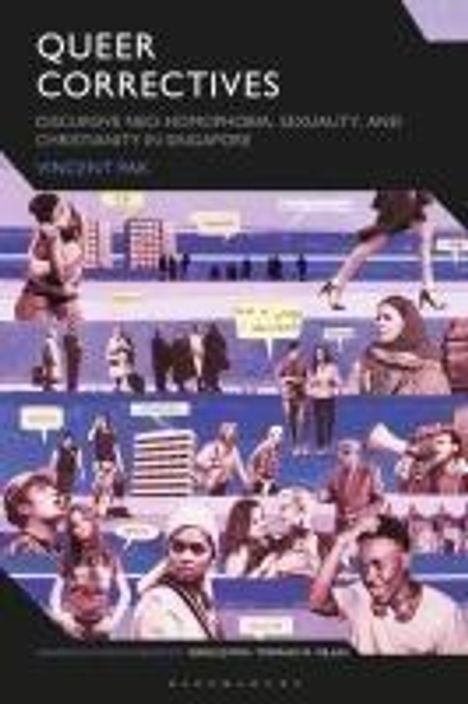Vincent Pak: Queer Correctives, Gebunden
Queer Correctives
- Discursive Neo-homophobia, Sexuality and Christianity in Singapore
(soweit verfügbar beim Lieferanten)
- Verlag:
- Bloomsbury Academic, 08/2025
- Einband:
- Gebunden
- Sprache:
- Englisch
- ISBN-13:
- 9781350454149
- Artikelnummer:
- 11982469
- Umfang:
- 190 Seiten
- Gewicht:
- 454 g
- Maße:
- 234 x 156 mm
- Stärke:
- 25 mm
- Erscheinungstermin:
- 21.8.2025
- Hinweis
-
Achtung: Artikel ist nicht in deutscher Sprache!
Klappentext
Queer Correctives explores Christian discourses of sex and sexuality in Singapore to argue that metanoia, the theological concept of spiritual transformation, can be read as a form of neo-homophobia that coaxes change in the queer individual.
In Singapore, Christian discourses of sex and sexuality have materialised in the form of testimonials that detail the pain and suffering of homosexuality, and how Christianity has been a salve for the tribulations experienced by the storytellers. This book freshly engages with Michel Foucault's posthumous and final volume of The History of Sexuality by revitalising his work on biblical metanoia to understand it as a form of neo-homophobia. Drawing on Foucauldian critical theory and approaches in discourse studies, it shows how language is at the centre of this particular iteration of neo-homophobia, one that no longer finds value in overt expressions of hate and disdain for those with non-normative sexualities, but relies extensively on seemingly neutral calls for change and transformation in personal lives.
Queer Correctives takes Singapore as a case study to examine neo-homophobic phenomena, but its themes of change and transformation embedded in discourse will be relevant for scholars interested in contemporary iterations of Foucault's concepts of discipline and technologies of the self. Together with interview data from religious sexual minorities in Singapore, itcaptures a burgeoning form of homophobic discursive practices that eludes mainstream criticism to harm through change and transformation.

